Main
News
About health
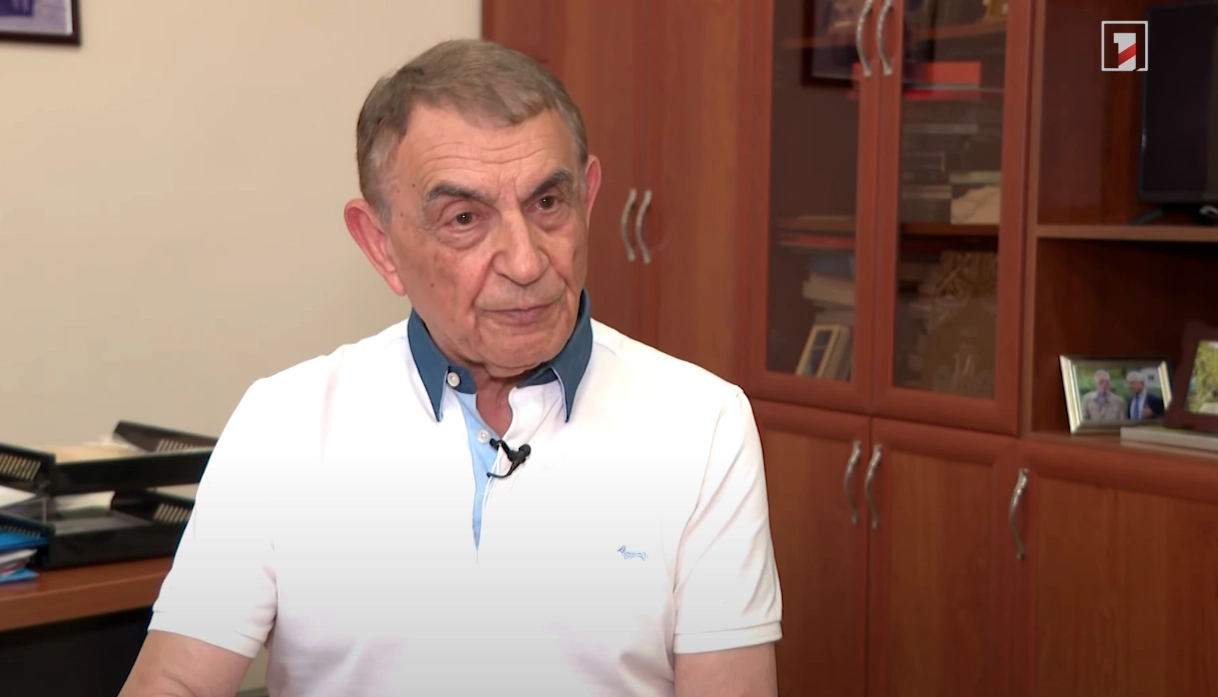
Obstructing the Work of Medical Professionals May Soon Be Criminally Punishable
23 July
A new draft law has been submitted to the National Assembly of the Republic of Armenia, proposing criminal liability for obstructing the professional duties of medical workers.
In an interview with Public Television, Doctor of Medical Sciences and Professor Ara Babloyan emphasized that individuals who interfere with the work of healthcare professionals must be held accountable.
The goal of the proposed amendment is to protect medical workers from harassment and ensure a safe and respectful environment for their essential work.
More details are available in the full report.
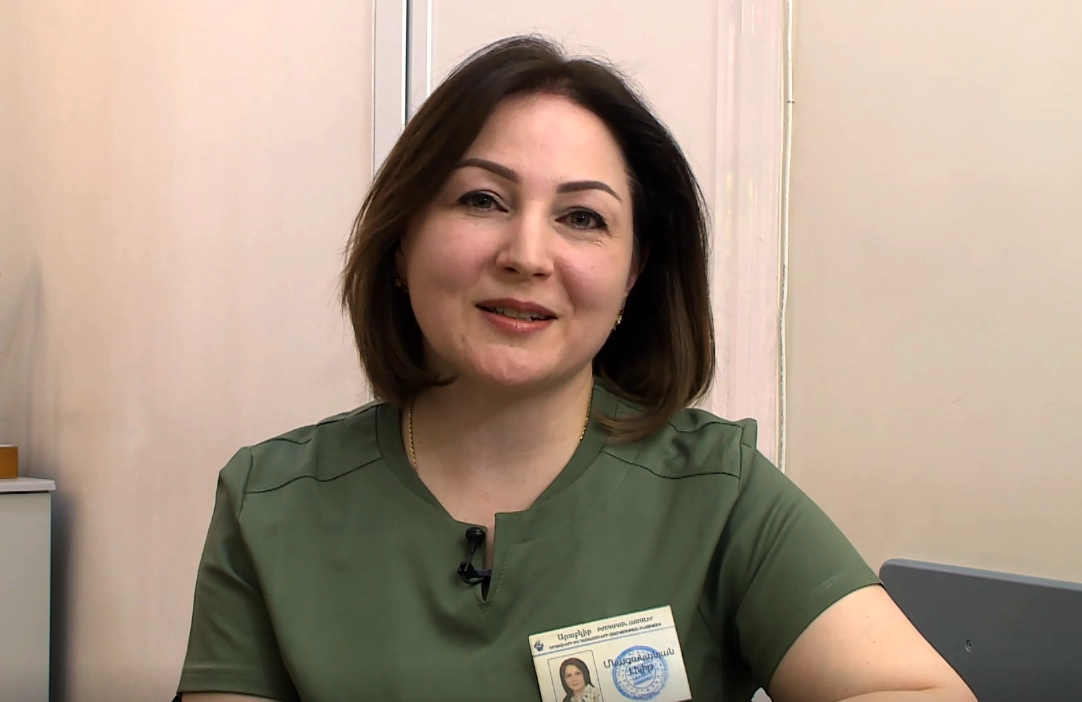
Important Signs of Dry Eye Syndrome
21 July
A burning sensation, feeling of grittiness in the eyes, sensitivity to light, tearing, temporary blurred vision, and a sense of heaviness in the eyelids — these symptoms may indicate dry eye syndrome. What is it, and what should be done in such cases?
Lilit Mnatsakanyan, ophthalmologist at the Arabkir Medical Center, spoke about the condition as part of the BujInfo program of Shant TV.
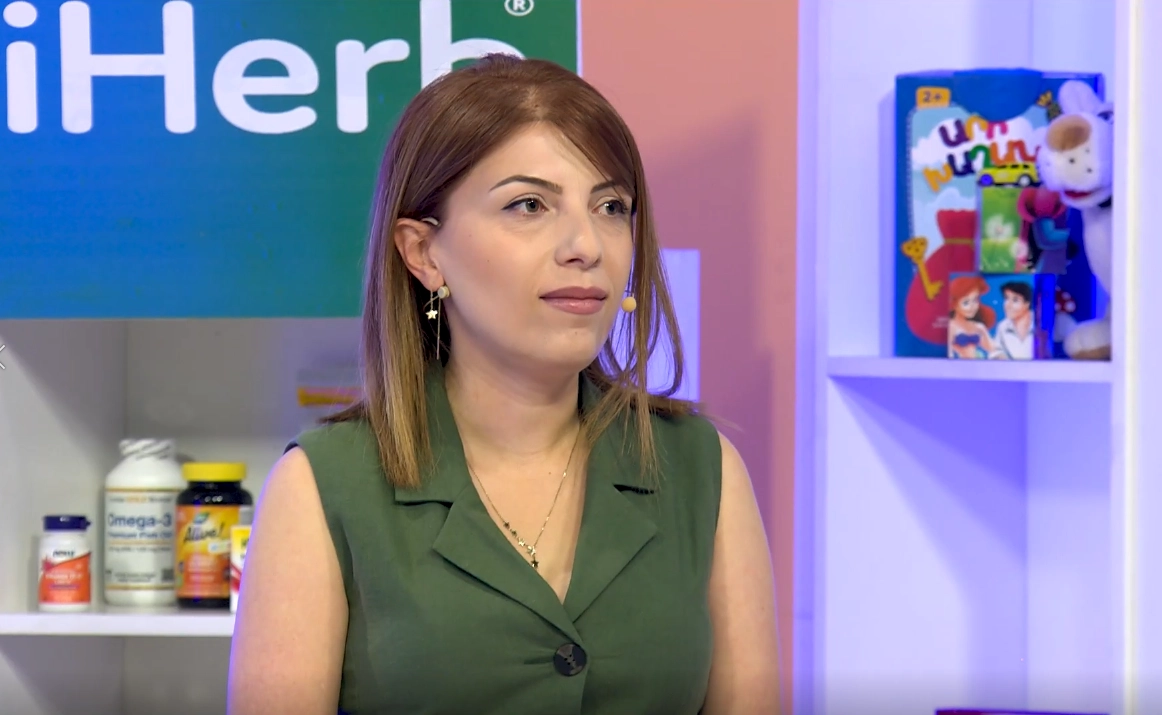
Understanding Childhood Earache: Complications and Prevention
20 July
Pediatrician Lia Andreasyan from the Arabkir Medical Center spoke about childhood earaches and otitis media in an interview with BujInfo on Shant TV.
Dear parents, listen in, stay informed, and make sure to consult your pediatrician in time—who will refer you to a specialist if needed.
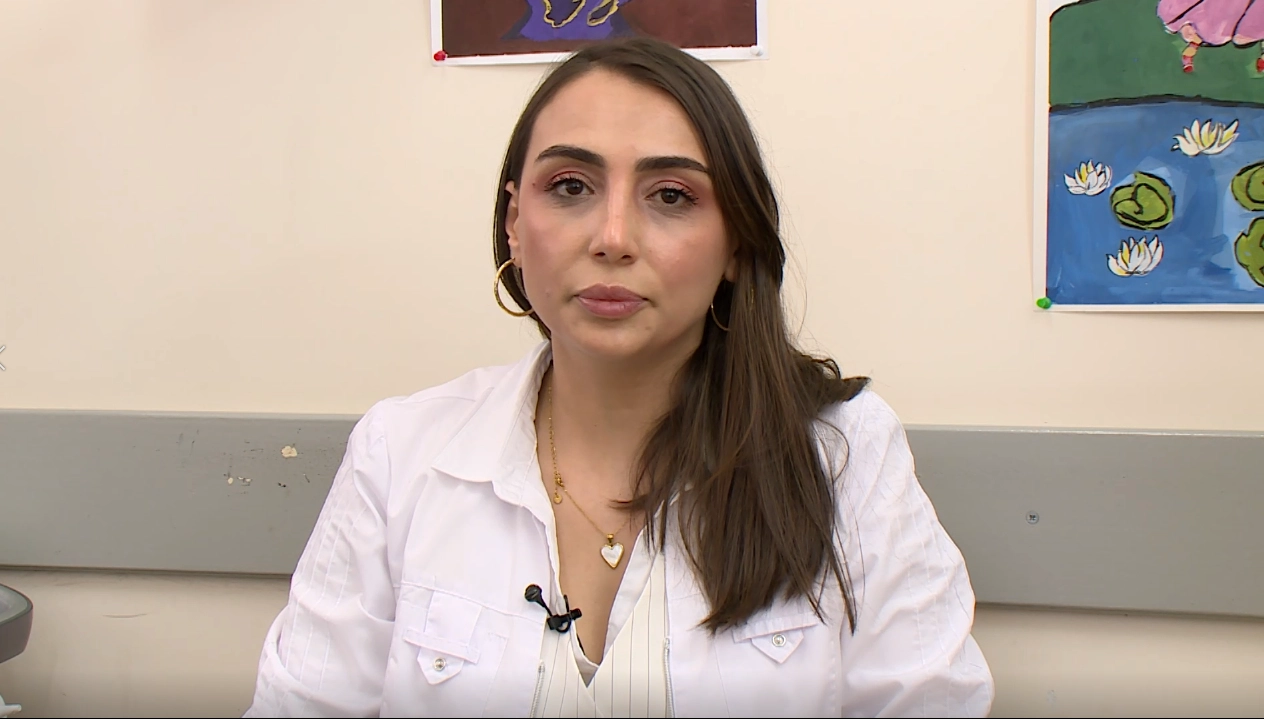
About Heart Rhythm Disorders in Children and Adolescents
17 July
Heart rhythm disorders can occur not only in adults but also in children and adolescents. Why do they happen? What are the symptoms? What risks are associated with a fast or slow heartbeat?
How can parents recognize a heart rhythm disorder, and what steps should they take?
Pediatric cardiologist Emma Sargsyan from the Arabkir Medical Center answered these important questions on Shant TV’s BujInfo program.
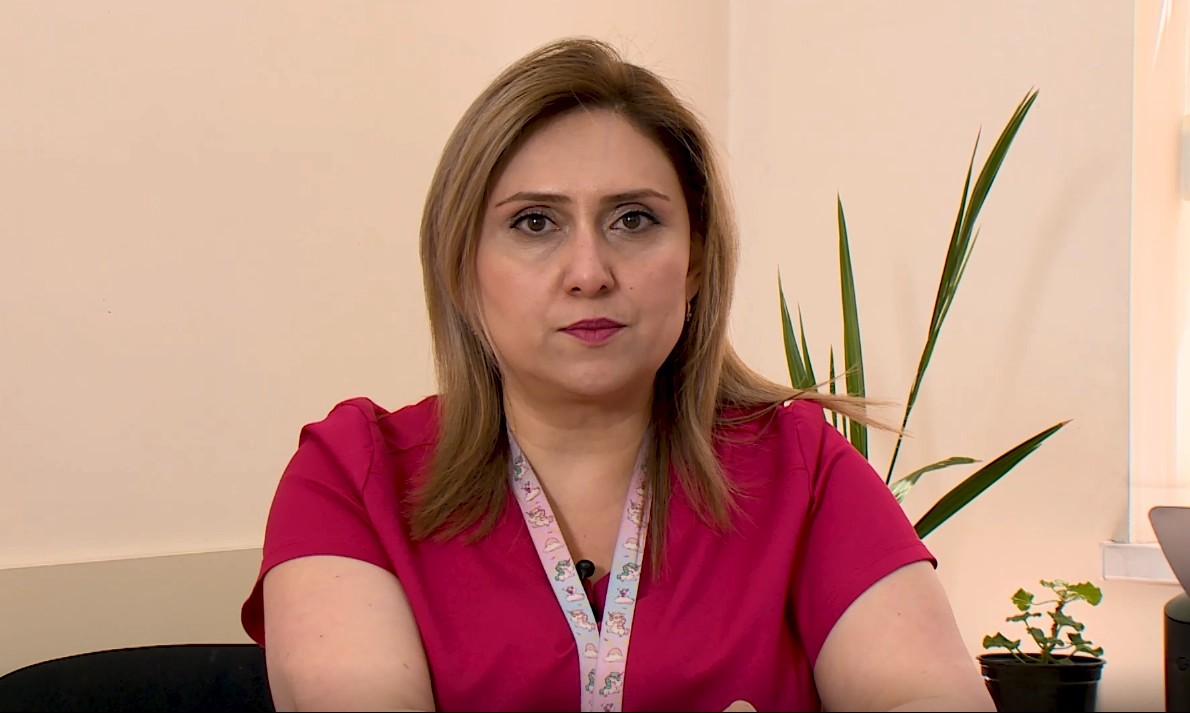
Fever in Children
15 July
Why do children get a fever, and what should parents do when it happens?
Pediatrician Marine Arustamyan from the Arabkir Medical Complex shared her advice in an interview with Shant TV’s BujInfo program.
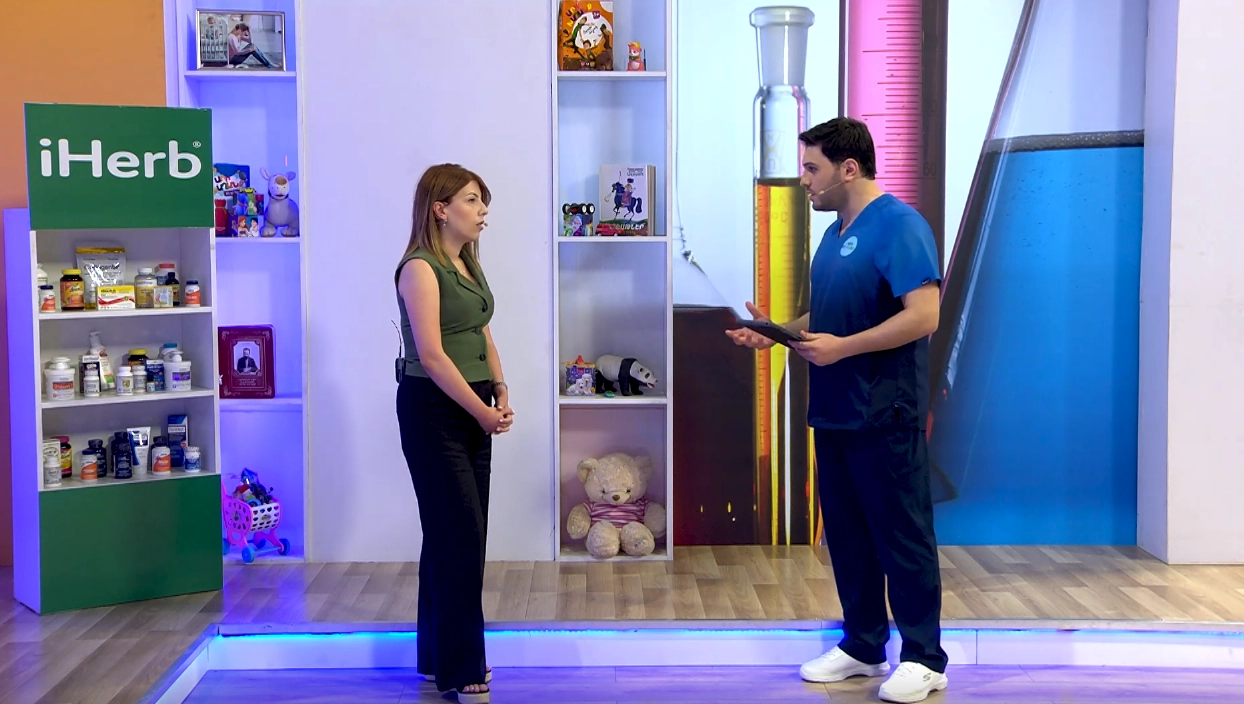
Pediatrician Lia Andreasyan on Tonsillitis
09 July
Tonsillitis in children is a topic that concerns many parents—after all, nearly every child experiences what we commonly call a sore throat at least once.
Dr. Lia Andreasyan, pediatrician at the Arabkir Medical Complex, spoke about this issue in an interview with "BujInfo", a program on Shant TV, answering key questions.
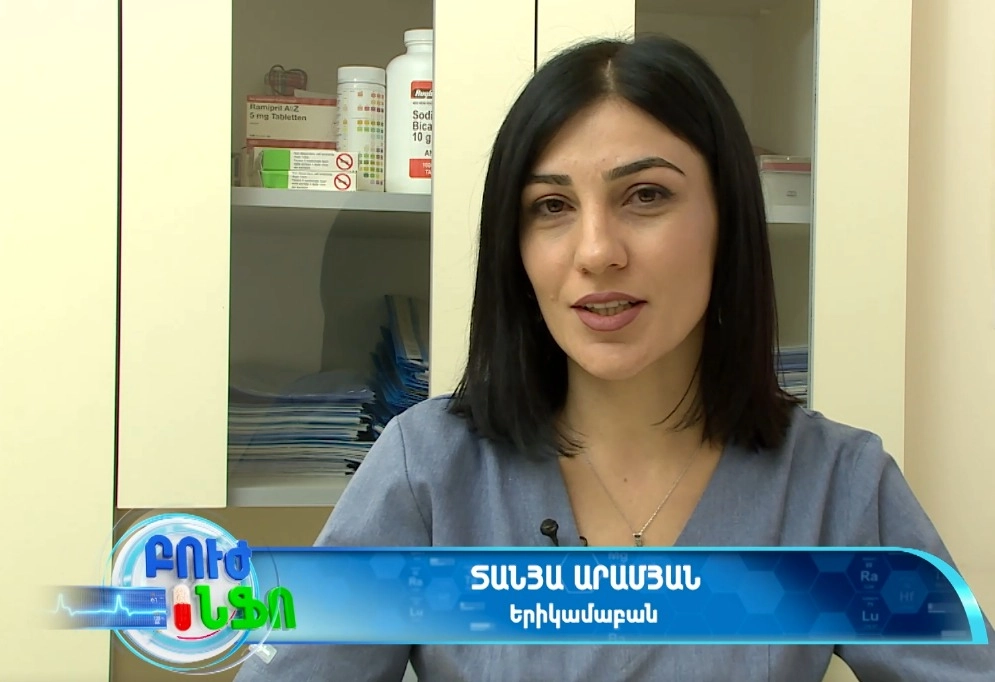
About Kidney Health
30 June
Tanya Aramyan, one of the young nephrologists at Arabkir Medical Complex, recently answered questions on the topic of kidney health during an interview with Shant TV’s program “BujInfo.”
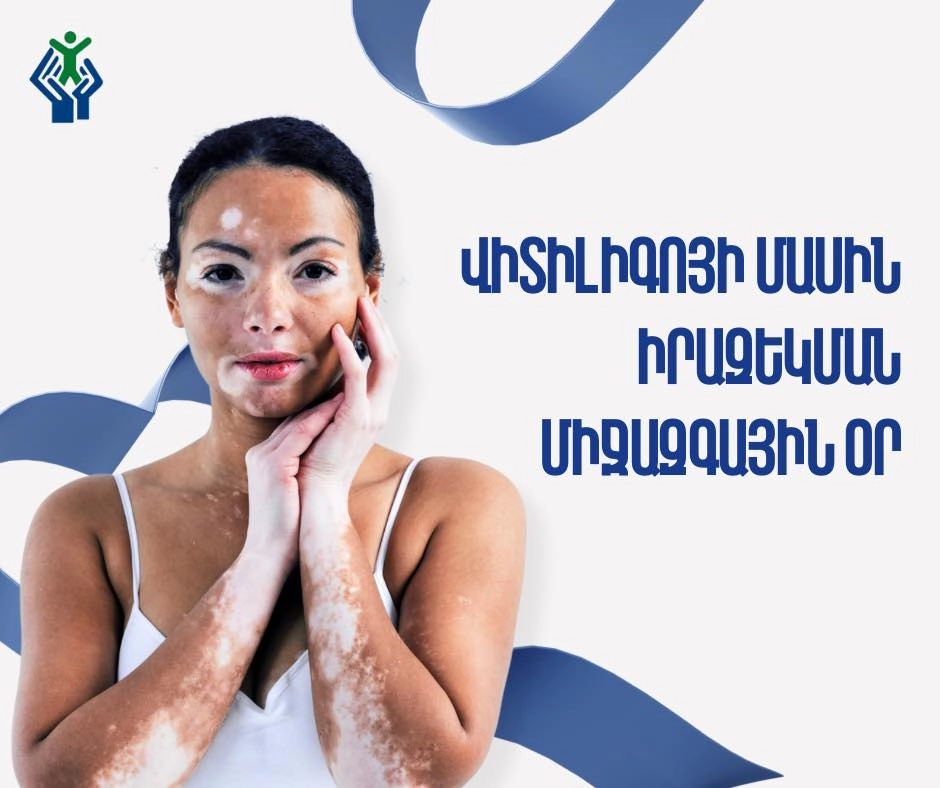
What is Vitiligo?
25 June
🗓️ June 25 marks World Vitiligo Awareness Day.
❓ What is vitiligo?
Vitiligo is an autoimmune condition in which pigment-producing cells—melanocytes—are mistakenly attacked by the immune system. This results in white patches appearing on various parts of the body. Hair in these areas may also turn white.
❓ What causes vitiligo?
Several factors may contribute, including:
▫️ Genetic predisposition
▫️ Stress
▫️ Sunburn
▫️ Certain infections
❗ Prevention tips:
Protect your skin from UV rays by:
Wearing hats and protective clothing
Using sunscreen regularly
❓ How is it treated?
Topical treatments or systemic therapy in severe cases
UVB phototherapy and excimer laser therapy have proven effective
👩🏻⚕️ At Arabkir Medical Complex, our dermatology team also uses excimer laser as part of a comprehensive treatment approach.
‼️ Vitiligo is a natural skin difference. Living with it is not a flaw or something to hide. Everyone deserves to feel seen, accepted, and beautiful—just as they are.
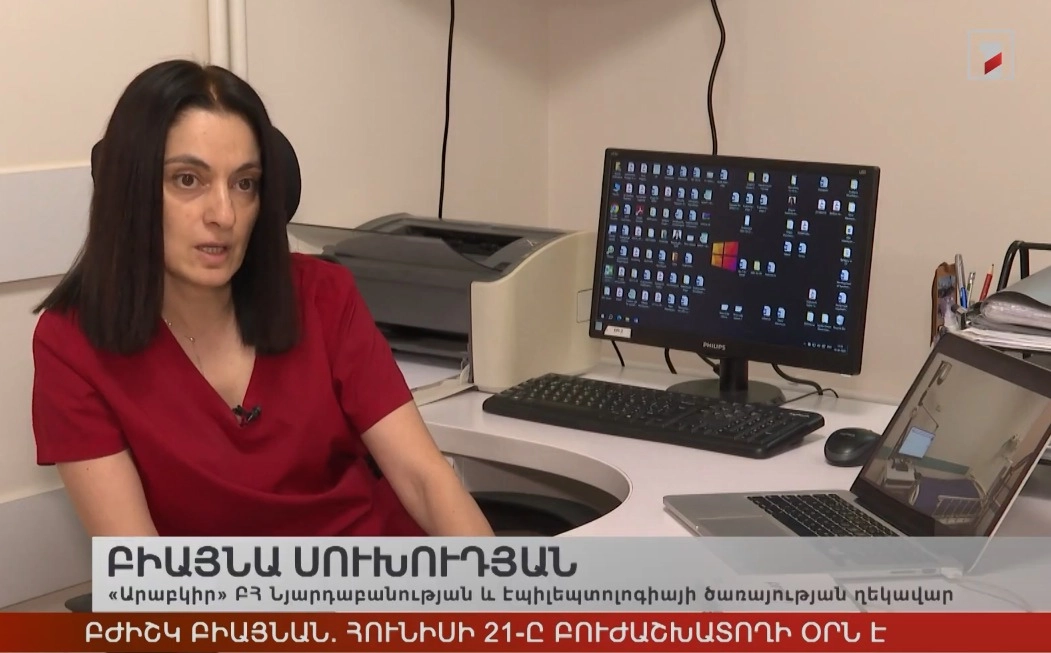
Biayna Sukhudyan
21 June
📺 On the occasion of Medical Workers’ Day, Public Television featured a story about our beloved Dr. Biayna Sukhudyan and the Neurology and Epilepsy Service she leads.
👩🏻⚕️ Thanks to her dedication and expertise, this service has brought neurology in Armenia to a new level of development—and continues to advance, keeping pace with global standards.
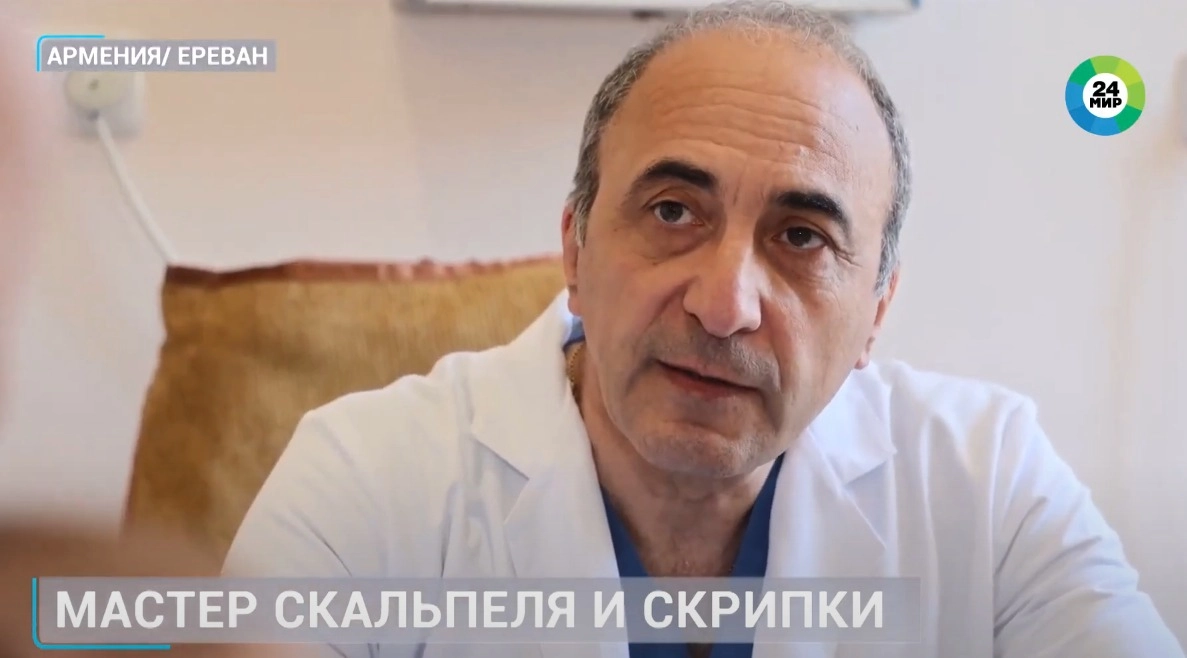
Poghos Geyikyan
21 June
🩺📺 On the occasion of Medical Workers’ Day, Mir TV prepared a special video about one of our beloved doctors, Dr. Poghos Geikyan.
👨🏻⚕️🎻 A kind and skilled surgeon—and a talented violinist—Dr. Geikyan is the Head of the Uro-Surgical Department at Arabkir Medical Complex, a member of the organ transplant team, and someone who is deeply appreciated by many children and their families.
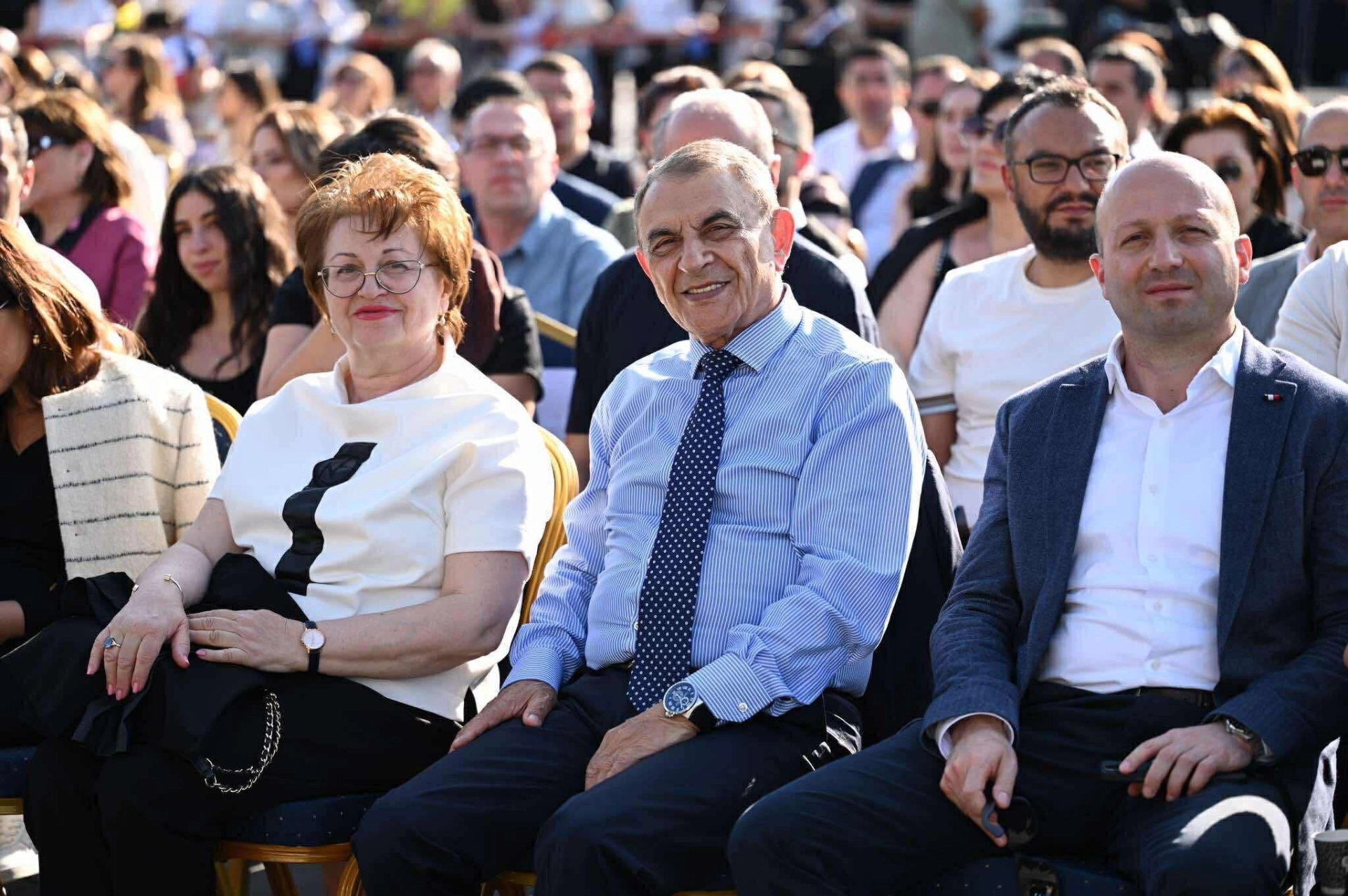
Doctors from “Arabkir” MC Awarded
21 June
An official ceremony titled “Thank You, Doctor” was recently held in Gyumri, jointly organized by the Ministry of Health of the Republic of Armenia and the Union of Medical Institutions of Armenia NGO.
During the event, outstanding medical professionals from across the country were recognized for their dedication and service. Among them were two exceptional specialists from Arabkir Medical Complex:
🔹Dr. Lilit Vardanyan, pediatrician, head of the Reception and Emergency Department,
🔹Dr. Irina Tovmasyan, developmental pediatrician, head of the Developmental Pediatrics Service.
We warmly congratulate our esteemed colleagues on this well-deserved recognition and wish them continued success in their important and impactful work.
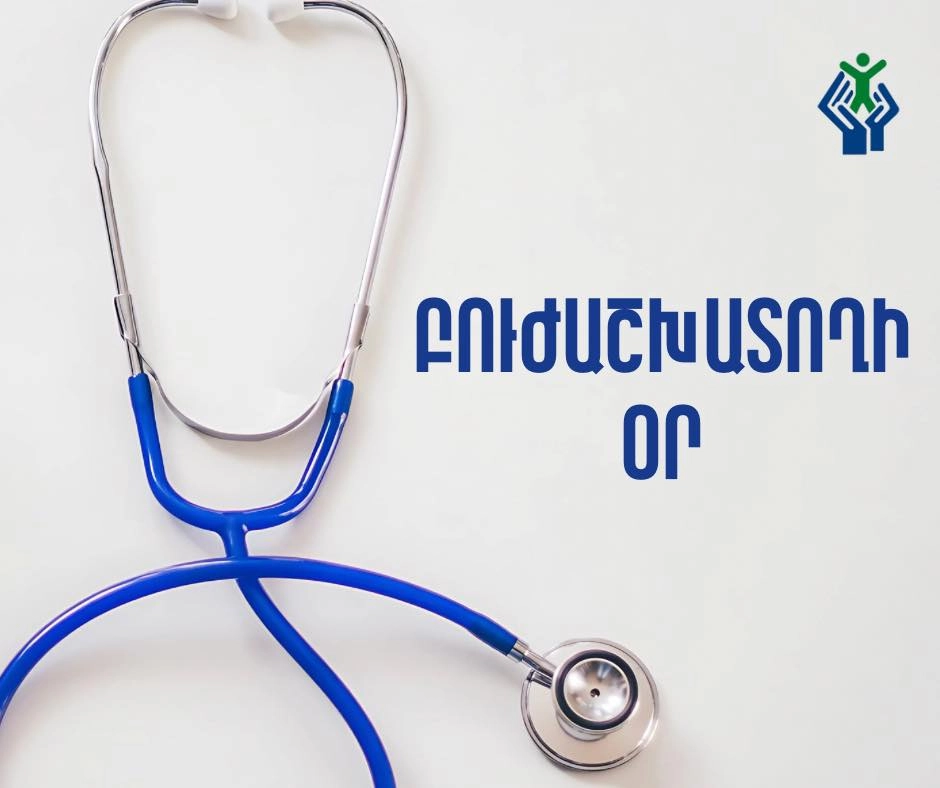
Congratulations!
21 June
June 21st is Medical Workers’ Day.
Today, we express our heartfelt gratitude and admiration to those who, through their dedication, compassion, and tireless efforts, save lives and improve the health of thousands every day.
We warmly congratulate all healthcare professionals—doctors, nurses, ambulance teams, and every member of the medical community—for your invaluable service.
We wish you good health, happiness, and continued success in your noble work.
This day belongs to you. Our deepest respect and appreciation go out to each and every one of you.
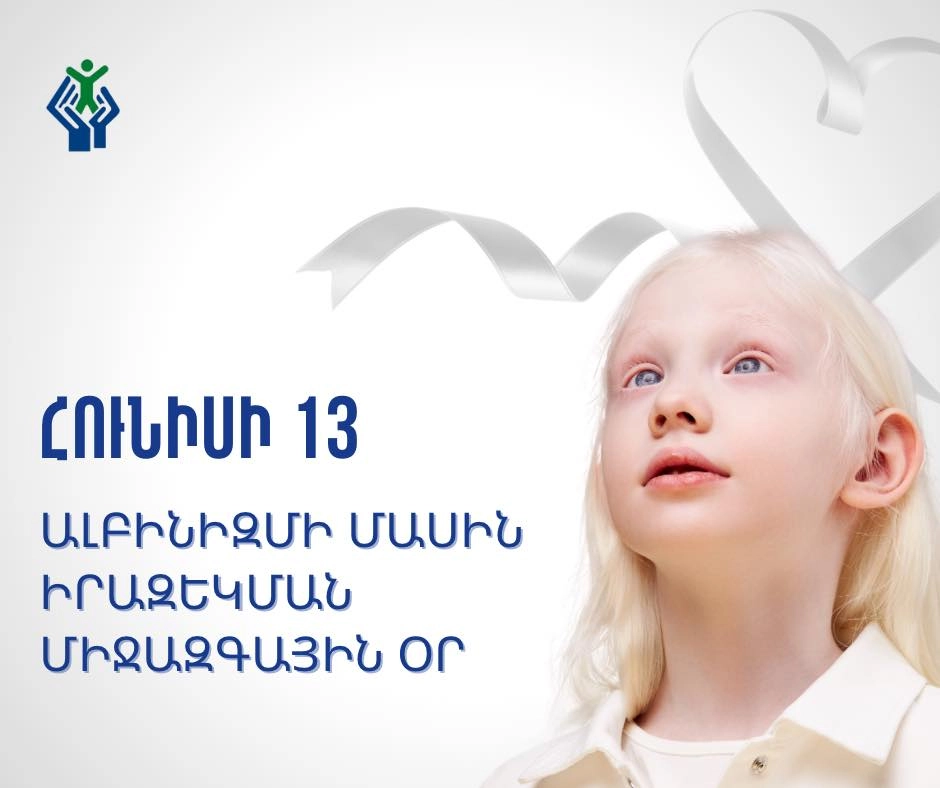
International Albinism Awareness Day
13 June
June 13 marks International Albinism Awareness Day.
Albinism is a rare hereditary condition in which the body’s production of melanin—the pigment that gives color to the skin, hair, and eyes—is reduced or completely absent. As a result, individuals with albinism typically have very pale or white skin, light-colored or reddish hair, and light eyes. These characteristics are usually noticeable at birth.
The absence of melanin can lead to increased sensitivity to sunlight, a higher risk of sunburn and skin cancer, and can also significantly affect vision. That’s why people with albinism are advised to use sunscreen with a high SPF, wear protective clothing, and use special glasses to protect their eyes.
People with albinism also often face stigma and discrimination simply because they look different. One of the key messages of International Albinism Awareness Day is the importance of equal rights and opportunities for all people, regardless of their health condition or appearance.
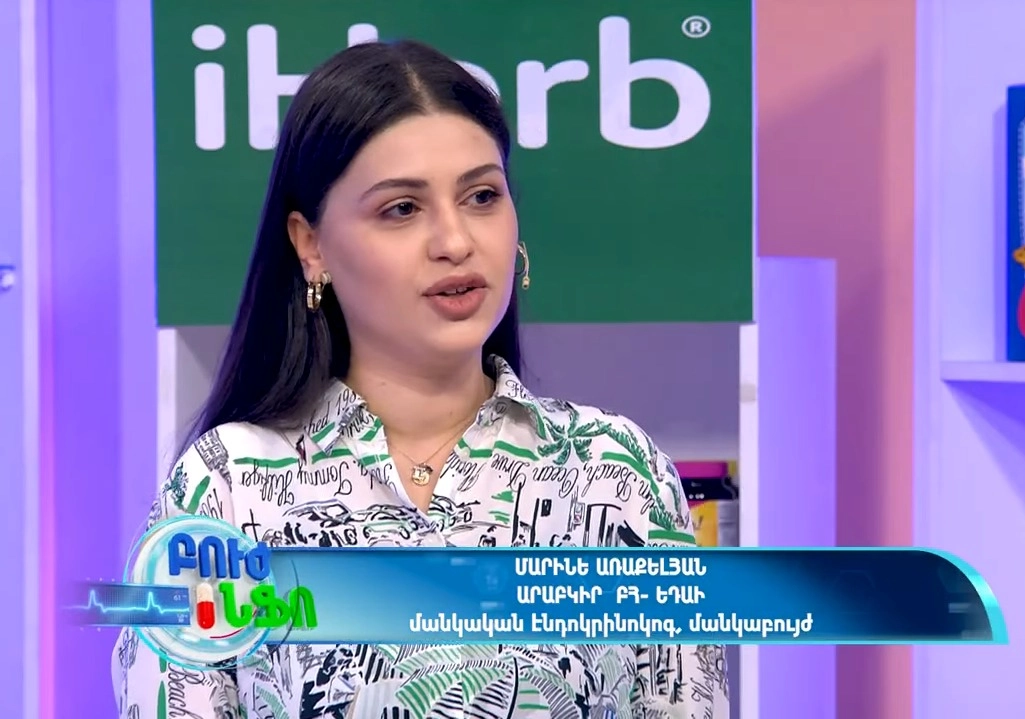
Growing Pains
11 June
Dr. Marine Arakelyan, one of our young pediatricians, recently appeared on “BujInfo” by Shant TV to answer important questions about growth disorders and short stature in children.
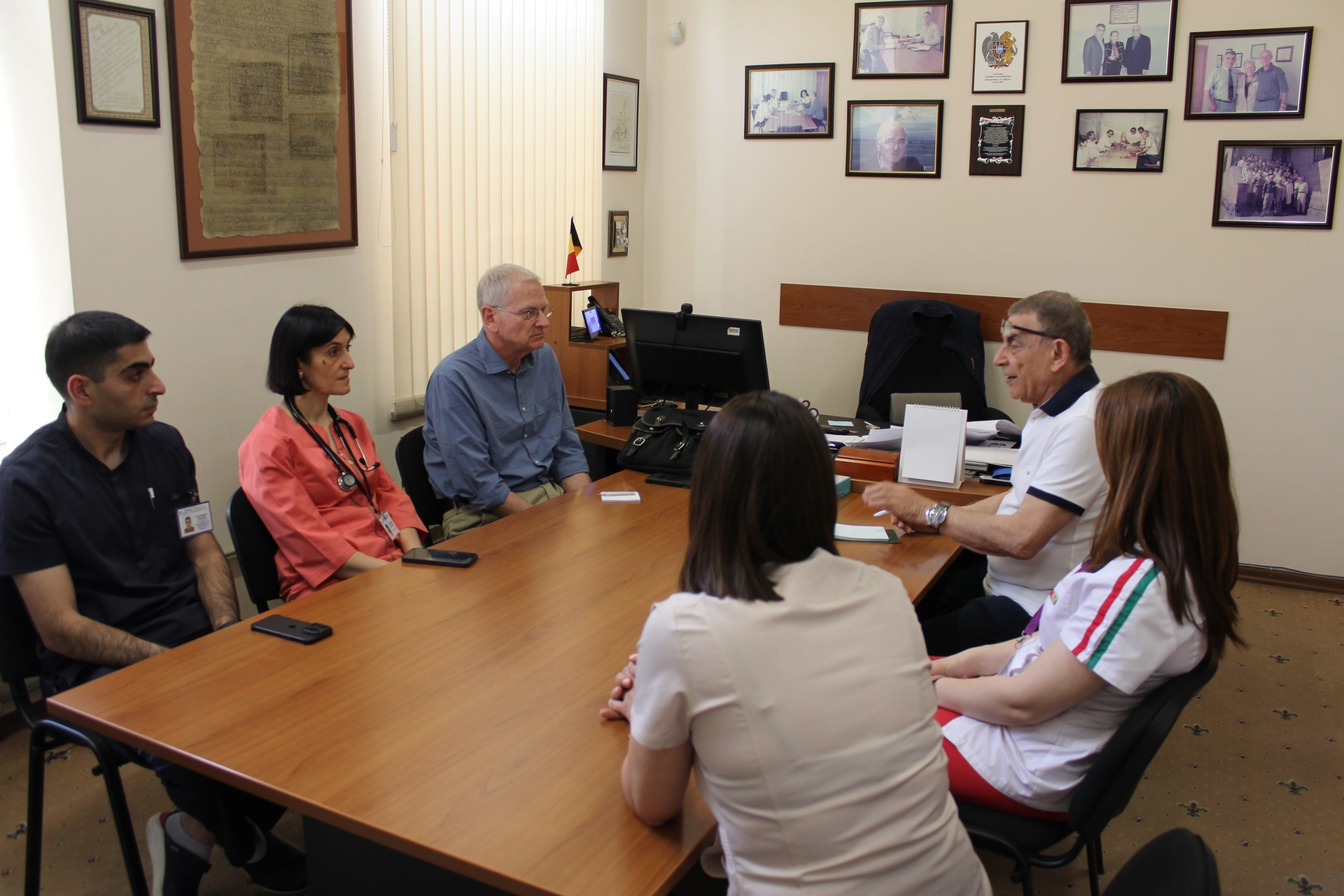
Professor Christian Braegger Visits Arabkir Medical Center Again
07 June
Professor Christian Braegger recently visited Arabkir Medical Center as part of his ongoing collaboration with the Gastroenterology and Endoscopy Services.
With many years of experience as the Head of the Gastroenterology and Nutrition Service at the University Children’s Hospital in Zurich, Professor Braegger held consultative discussions on complex clinical cases with colleagues from Arabkir, as well as with specialists from other medical institutions.
Under his direct supervision, several endoscopic procedures were performed, including gastroscopy and colonoscopy with multi-stage biopsies. Additionally, percutaneous endoscopic gastrostomy (PEG) placements were carried out in children with neurological disorders who face significant challenges with swallowing and nutrition.
During his visit, Professor Braegger also met with Professor Ara Babloyan, Scientific Director of Arabkir Medical Center, to discuss new ideas for future collaboration.
#arabkirmc #gastroenterology #գաստրոէնտերոլոգիա #endoscopy

Caries (Tooth Decay) Awareness Day
04 June
Caries, or tooth decay, is damage to the enamel caused by bacteria and sugary foods. It often starts silently — as tiny, invisible spots — but can quickly turn into black dots and eventually deep cavities. These cavities form a dangerous path to the nerve and root of the tooth, sometimes leading to severe pain or even tooth loss.
Dear parents, please pay special attention to your children's dental health by encouraging a healthy, balanced diet, helping them learn proper and timely brushing habits, and ensuring they visit the dentist regularly. Prevention is always easier and more effective than treatment.
#CariesAwareness #caries #ArabkirMC
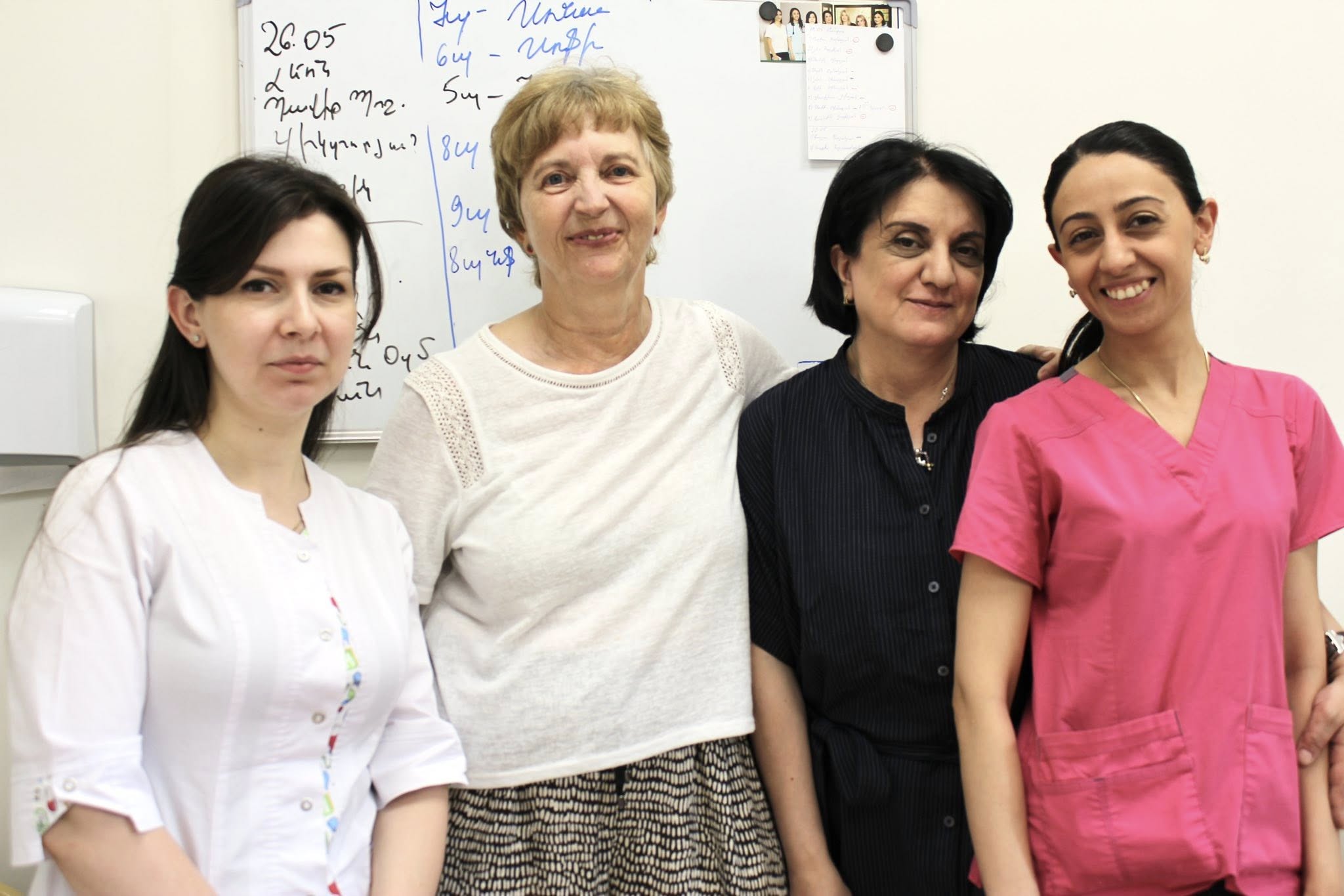
17 Years of Collaboration – Professor Saurenmann Visits Arabkir
03 June
Arabkir Medical Center was once again honored to welcome Professor Traudel Saurenmann, our long-time partner in pediatric rheumatology.
With extensive clinical experience in leading hospitals in Zurich and Winterthur, Switzerland, Professor Saurenmann has been collaborating with the Rheumatology Service at Arabkir for the past 17 years, working closely with Dr. Gayane Khloyan, Head of the Service.
During this visit, as in previous ones, the professor consulted on approximately 40 complex pediatric rheumatology cases. She also delivered a lecture focused on focal and systemic scleroderma, enriching both clinical practice and medical education at the center.
Arabkir deeply values this long-standing partnership, which continues to enhance the quality of care for children with rheumatic conditions.
#ԱրաբկիրԲՀ #arabkirmc #ռևմատոլոգիա #rheumatology
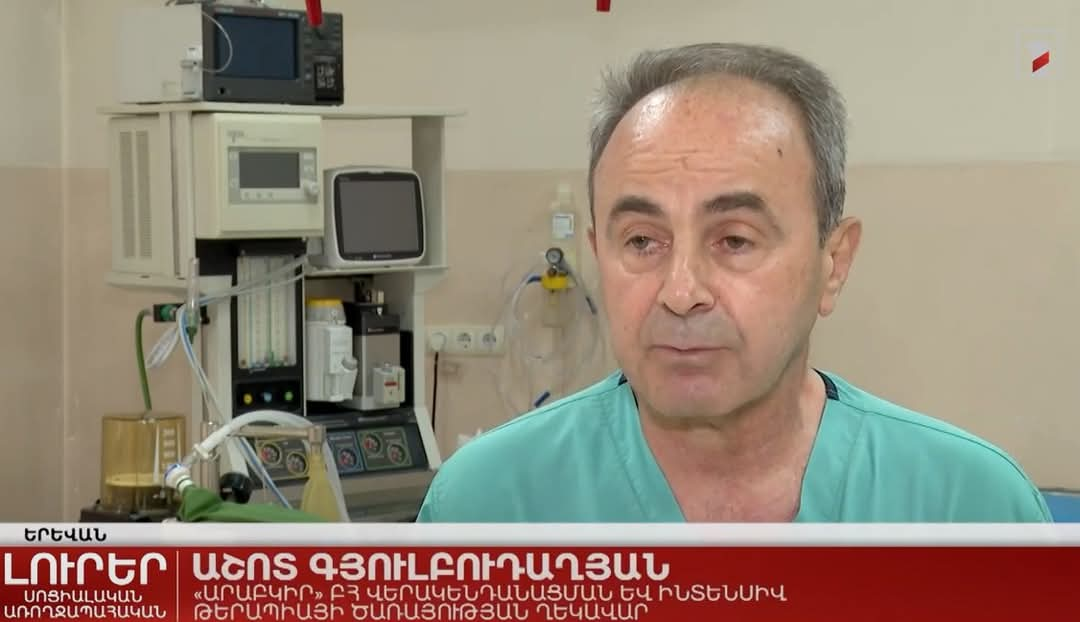
Happy Birthday, Ashot Gyulbudaghyan!
02 June
Today we celebrate the 70th anniversary of Ashot Varos Gyulbudaghyan, the esteemed head of one of the cornerstone departments of the Arabkir Medical Center—the Intensive Care and Resuscitation Department.
For decades, Dr. Gyulbudaghyan’s dedicated and tireless work has saved the lives of thousands of children. He is a true professional—one whose compassion and empathy have not only healed young patients but also brought comfort and peace to even the most distressed parents.
Congratulations, dear Ashot Varos!
Your contribution is invaluable and immeasurable—not only to Arabkir Medical Center, but to the entire healthcare system of Armenia. We wish you and your loved ones good health, boundless love, and a life filled with light and warmth.
While the work in intensive care is urgent and demanding, capturing it on camera is a slow and careful process. That’s why we invite you to watch a previously aired feature by the Public TV Company, highlighting a serious case of severe pesticide poisoning in a child.
Watch and listen once again to the words of the distinguished Dr. Ashot Gyulbudaghyan. Dear parents, please remain vigilant when it comes to your children’s health.
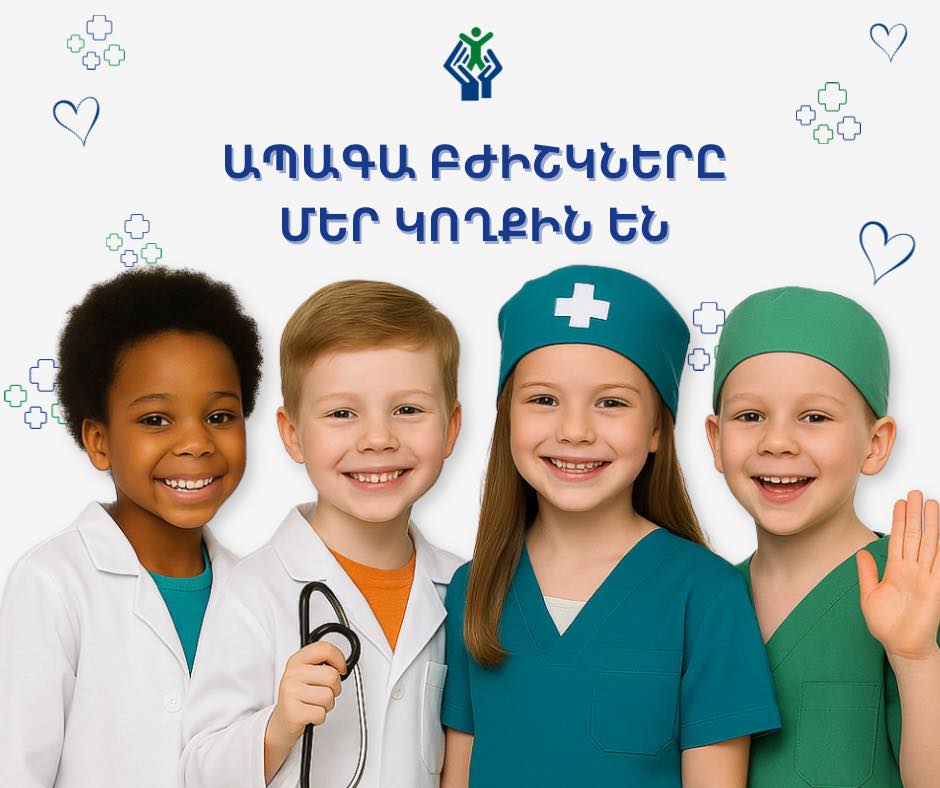
International Children’s Day
01 June
Dear children, the dearest treasures of our hearts and lives,
We warmly congratulate you on one of the brightest and most joyful holidays — June 1st, International Children’s Day. This day was first celebrated 75 years ago, in 1950, when many of your grandparents were children. Years from now, you will celebrate this day with your own children and grandchildren, knowing that June 1st is, above all, about rights—your right to live in peace, to grow up healthy and safe, to be educated, to be included, to create, and to live a life full of love and warmth.
Today, we carry the responsibility to protect these rights. Tomorrow, you—as the adults of the future—will continue that mission.
At Arabkir Medical Center, we are proud to be advocates, protectors, and providers of your right to healthcare. Our dedicated team of doctors, nurses, midwives, and other specialists—together with colleagues from Armenia and around the world—work tirelessly for your health, development, recovery, inclusion, and the opportunity to live a full and meaningful life.
Enjoy life in all its colors, dear children. Be healthy and happy in the warmth of your families and friendships. Dream big, turn your dreams into goals, and pursue them with courage and joy.
Wishing you good health, a peaceful sky, and a carefree childhood.
#arabkirmc #ArabkirMC #June1
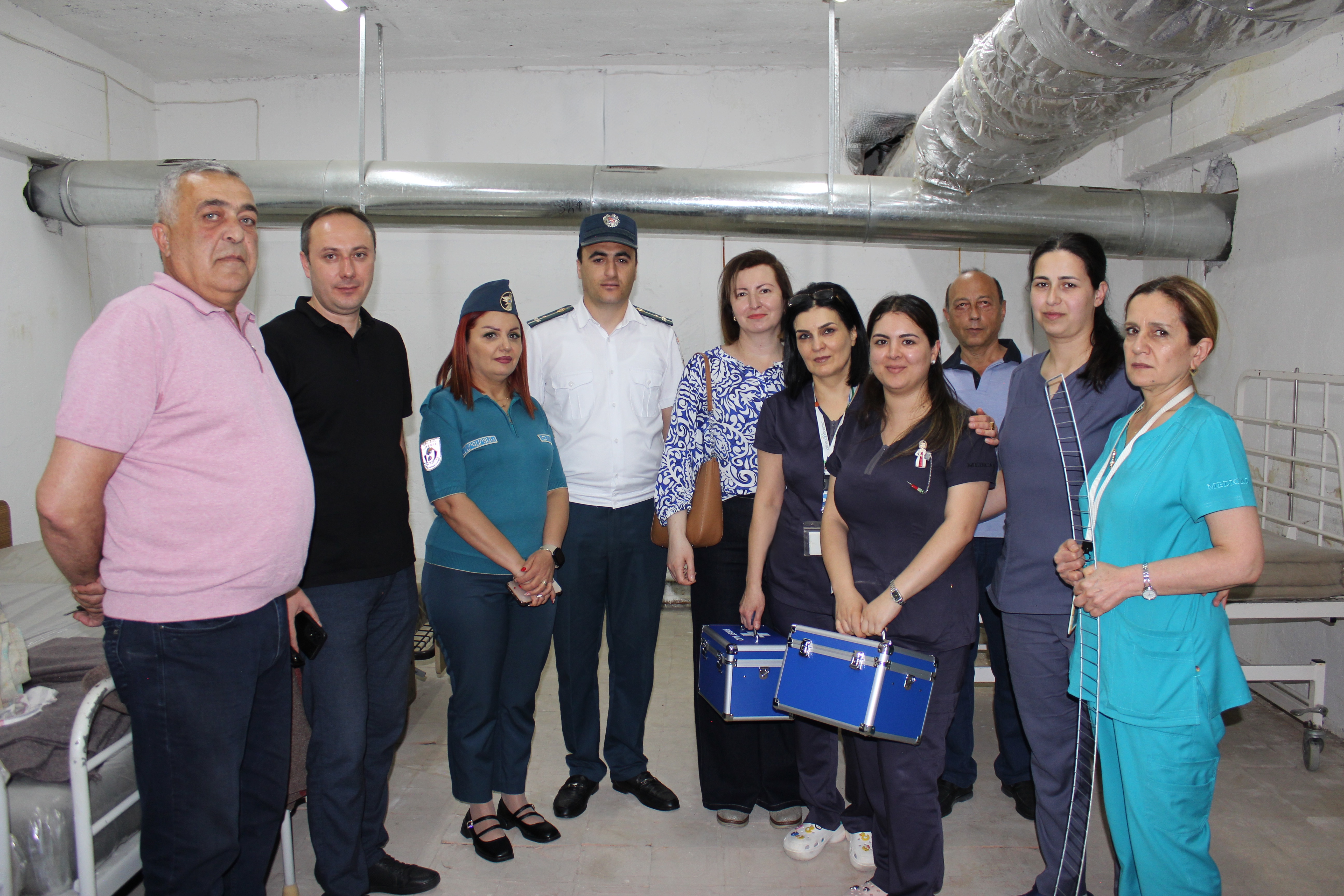
Emergency Preparedness Exercise
30 May
An alarm sounded, prompting staff and patients to promptly proceed to the designated shelter area — part of a planned emergency preparedness exercise at the Arabkir Medical Center.
The goal of the drill was to raise awareness and strengthen practical skills in responding to emergency situations and civil defense scenarios. The exercise was conducted under the supervision of senior instructors from the Rescue Service of the Ministry of Internal Affairs, along with a senior specialist from the mobilization department of the Arabkir administrative district.
Their professional evaluation and practical recommendations will play a key role in ensuring that the medical center is well-prepared to take appropriate and effective action in the event of an actual emergency.
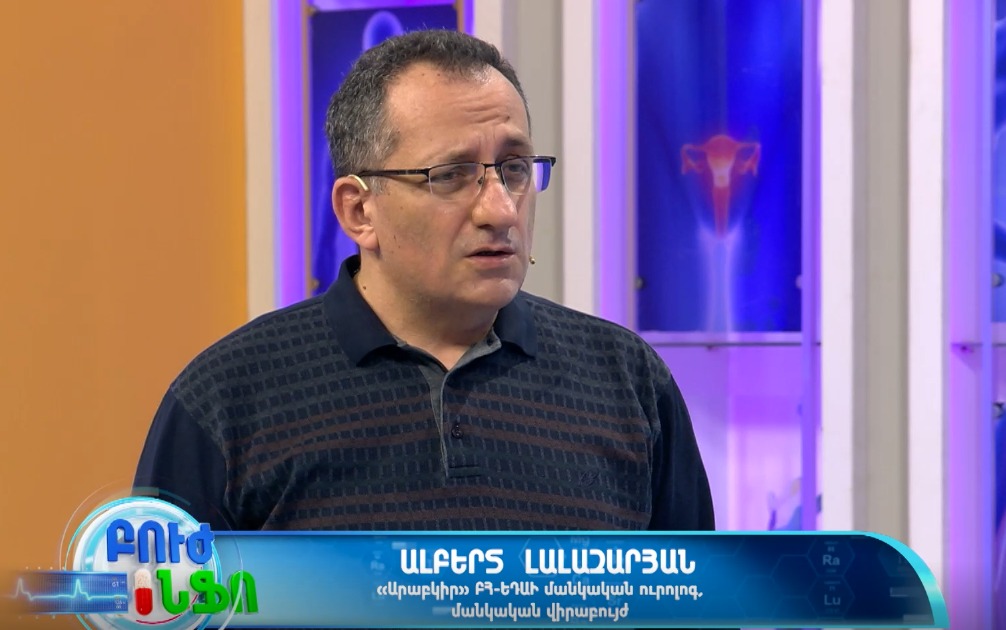
Children’s Bedwetting (Nocturnal Enuresis)
29 May
Dr. Albert Lalazaryan, pediatric surgeon at the Arabkir Medical Center, recently spoke with Shant TV’s Bujinfo program to address common questions about children’s bedwetting.
We encourage all parents to stay informed and attentive to every aspect of their child’s health.
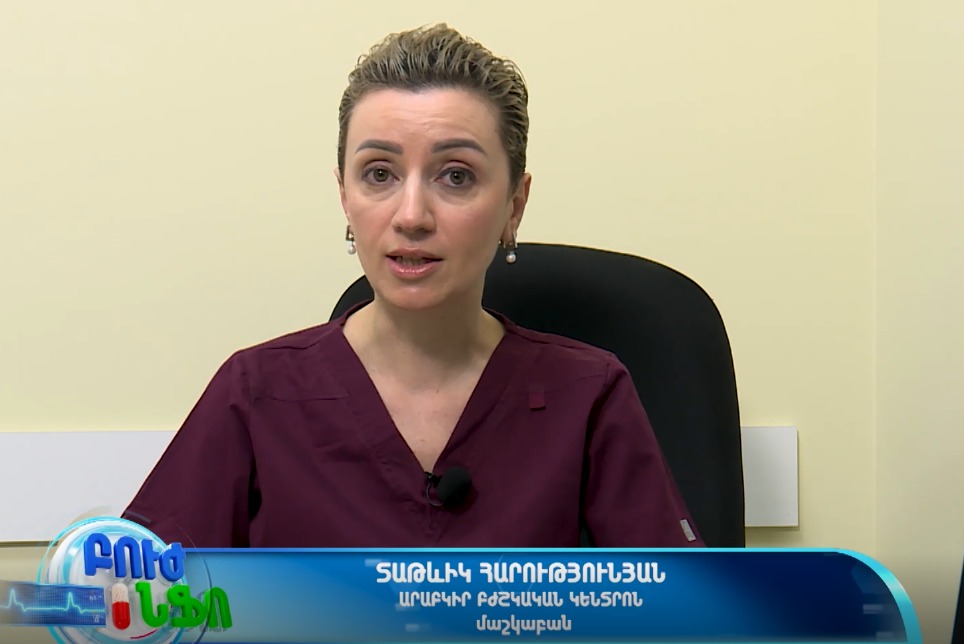
Molluscum Contagiosum and Warts
26 May
Learn more about viral skin infections—specifically molluscum contagiosum and warts. This time, Tatevik Harutyunyan, a dermatologist at Arabkir Medical Center, is featured on the “Advice from a Specialist” segment of the Buzhinfo program on Shant TV.
Hello, I am Dr. Tatevik Harutyunyan, a pediatric dermatologist working at the “Arabkir” Medical Center in the Dermatology department. Today, I want to talk about viral skin infections that occur in children. We can divide these infections into two large groups. The first group includes those commonly called childhood infectious exanthemas, such as chickenpox, measles, and parvovirus infection, which is currently very common. The second group consists of infections that affect only the skin, with molluscum contagiosum and warts being the most common in childhood. Almost all pediatric dermatologists encounter these issues daily, and it can often be challenging to explain treatment instructions to parents.
Let’s start with molluscum contagiosum. This condition appears as small pink or whitish nodules located on various areas of the skin, mainly in exposed areas. Molluscum contagiosum is caused by a virus that spreads through contact. Transmission often occurs in group settings, such as kindergartens, swimming pools, or other collectives. The infection can also spread through autoinoculation, since the contents of the nodules are contagious. A child may scratch or tear the nodules, spreading the virus to surrounding skin. Additionally, hygiene items such as towels and combs can also serve as sources of infection.
Regarding treatment, international guidelines often suggest that molluscum contagiosum does not require active treatment and can resolve on its own. However, the challenge lies in the duration: unlike other infections that resolve within days, molluscum may take from six months to two years to clear. This is problematic because children often attend group activities during this time and can spread the infection to others. The nodules can also become inflamed and itchy, especially in children with dry or atopic skin who are more susceptible to this virus. For these reasons, treatment is sometimes necessary.
The most common treatment is mechanical removal, which is performed under local anesthesia using a needle. Another option is topical medication, but this can be inconvenient for parents as it requires regular application at home and close monitoring. Other treatments like liquid nitrogen, electrocoagulation, and laser therapy are less commonly used in children because they may cause discomfort and leave scars.
Now, let’s talk about warts. Warts are caused by the human papillomavirus (HPV) and can appear in various forms. Based on their appearance, we classify them as plantar warts, common warts, mosaic warts, filiform warts. Despite their different looks, all warts are viral growths. The infection spreads through close contact, autoinoculation, and sharing personal hygiene items. Similar to molluscum contagiosum, dermatologists usually diagnose warts based on clinical examination alone. Sometimes, to distinguish warts from other skin growths, a dermatologist may use a device called a dermatoscope, which helps identify the wart clearly.
The gold standard treatment for warts is cryosurgery, which involves applying liquid nitrogen to the wart. This causes controlled tissue destruction, leading to blister formation and eventual wart disappearance. For both warts and molluscum, international guidelines do not recommend immunostimulant treatments such as suppositories or tablets, which are often prescribed but lack evidence. Since these growths are external and exophytic, removal by destructive methods is the recommended approach.
Individual susceptibility plays an important role, as some children in groups may frequently develop warts while others never do. Prevention focuses on good hand hygiene and not sharing personal hygiene items—even among family members if someone has warts. Additional risk factors include nail-biting, self-injury, and attempts at self-treatment using unproven methods.
For these reasons, I strongly recommend consulting a dermatologist if your child has warts or similar skin issues. A correct diagnosis and tailored treatment plan will ensure the best care.
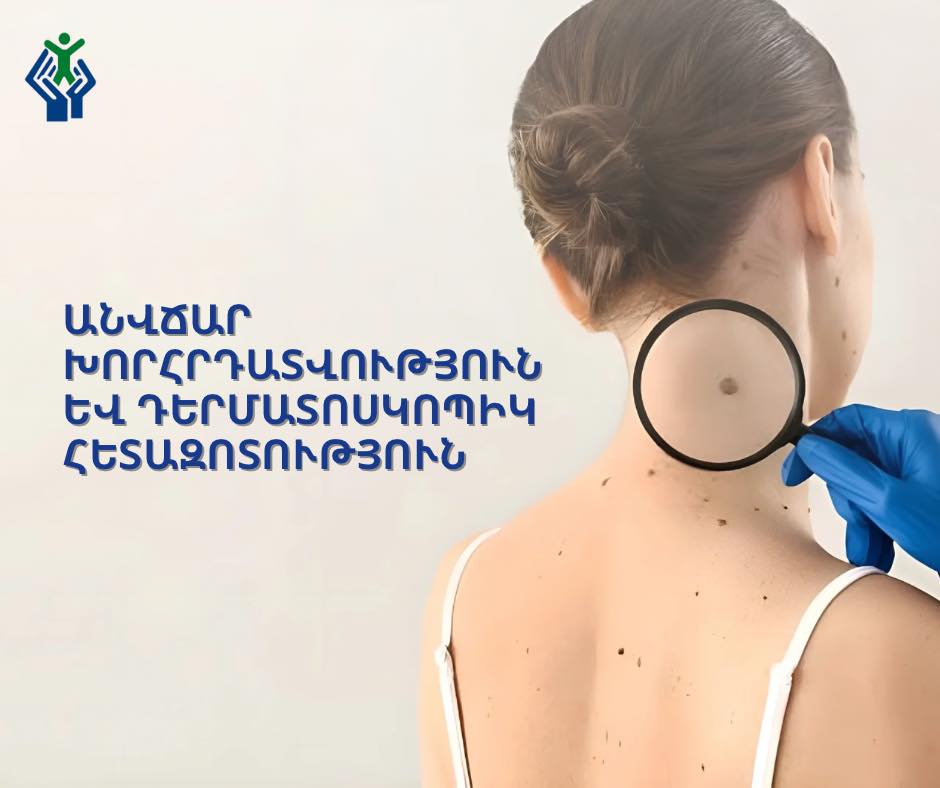
Free Consultation and Dermatoscopic Examination at Arabkir Medical Center
23 May
Attention!
As part of Melanoma Awareness and Prevention Month, on May 27, the dermatology team at Arabkir Medical Center will be offering free consultations and dermatoscopic examinations.
‼️ Melanoma is the most aggressive and rapidly spreading form of skin cancer. Early diagnosis is key to successful treatment.
If you have:
🔹 Numerous moles
🔹 Newly appeared pigmented spots
🔹 Changes in the shape, size, or color of existing moles
…it is important to get screened, regardless of your age.
Event Details:
📅 Date: May 27, 2025
📍 Location: Arabkir Medical Center, 2nd floor
🕐 Time: 11:00 AM – 4:00 PM
📞 Contact: 015 400 300, ext. 1039
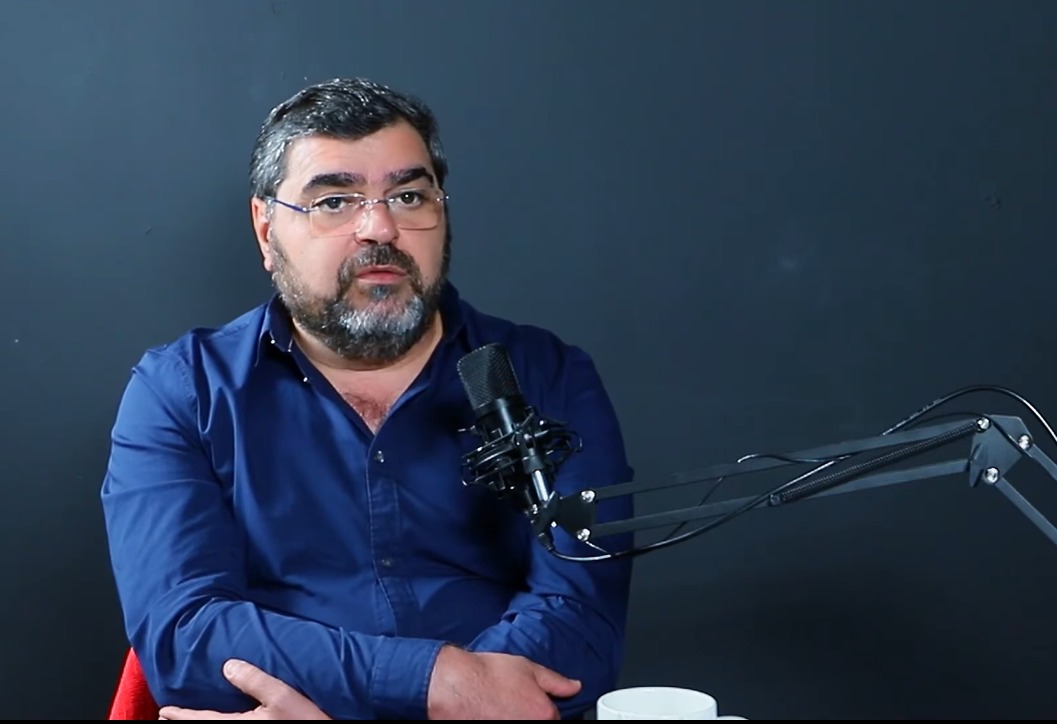
May 20 – Traumatologists and Orthopedists Day
20 May
May 20 marks the professional holiday of traumatologists and orthopedists.
We warmly congratulate the dedicated doctors of our Pediatric Orthopedic Service, their team, and colleagues across the field. We wish you continued health, strength, and professional success.
On this occasion, tune in to Narine Manukyan’s "Medtime" podcast featuring Dr. Vahe Yavryan, Head of the Pediatric Orthopedic Service.
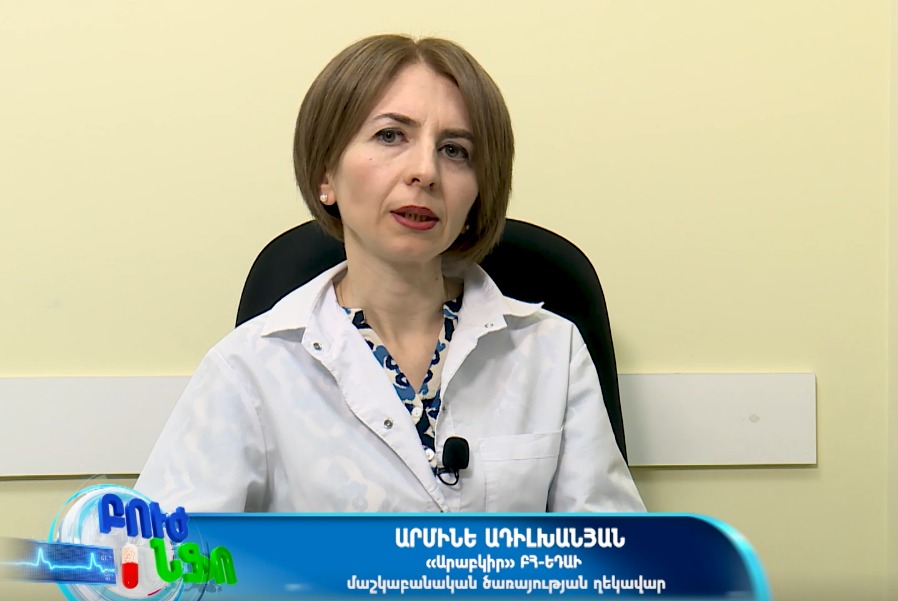
Genodermatoses: Hereditary Skin Diseases
19 May
May is observed as Skin Health Month, a time to raise awareness about the importance of skin care and early diagnosis of skin-related conditions.
On this occasion, we share insights from Dr. Armine Adilkhanyan, Head of the Dermatology Service at Arabkir Medical Center, featured on Shant TV’s “BuzhInfo” program. The topic: Genodermatoses—hereditary skin diseases.
“Hello, my name is Dr. Armine Adilkhanyan. Today I’ll speak about a group of conditions known as hereditary skin diseases, or genodermatoses.
While thankfully rare, these diseases can significantly impact a patient’s health, quality of life, and development. There are currently around 400 known types. Some affect only the skin, while others involve multiple systems, including the nervous system, eyes, and hearing.
Multidisciplinary care is essential—especially in children—where dermatologists work closely with neurologists, ophthalmologists, and other specialists.
For example, neurofibromatosis is one such condition, where early skin symptoms can signal the disease. Proper dermatological evaluation is critical for early diagnosis and management.
Among the better-known genodermatoses are types of ichthyosis, ranging from mild forms to Harlequin syndrome, which has a severe presentation, and epidermolysis bullosa, which varies in severity. In severe cases, even minor trauma can cause painful skin ulcers, affecting mucous membranes and leading to nutritional issues or limb deformities.
Though traditionally considered incurable, advances in medical science offer new hope. Modern treatment methods can significantly improve the lives of affected patients.
While diagnosis is often based on clinical presentation, identifying specific gene mutations plays a crucial role. Unfortunately, many genetic tests are still not available in Armenia.
However, we are proud to collaborate with French-Armenian specialists who support us in diagnosing and treating children with these rare conditions.
It’s vital not to shy away from these diagnoses. Early and consistent care, with the support of professionals, can make a real difference in managing hereditary skin diseases—for patients and their families.”
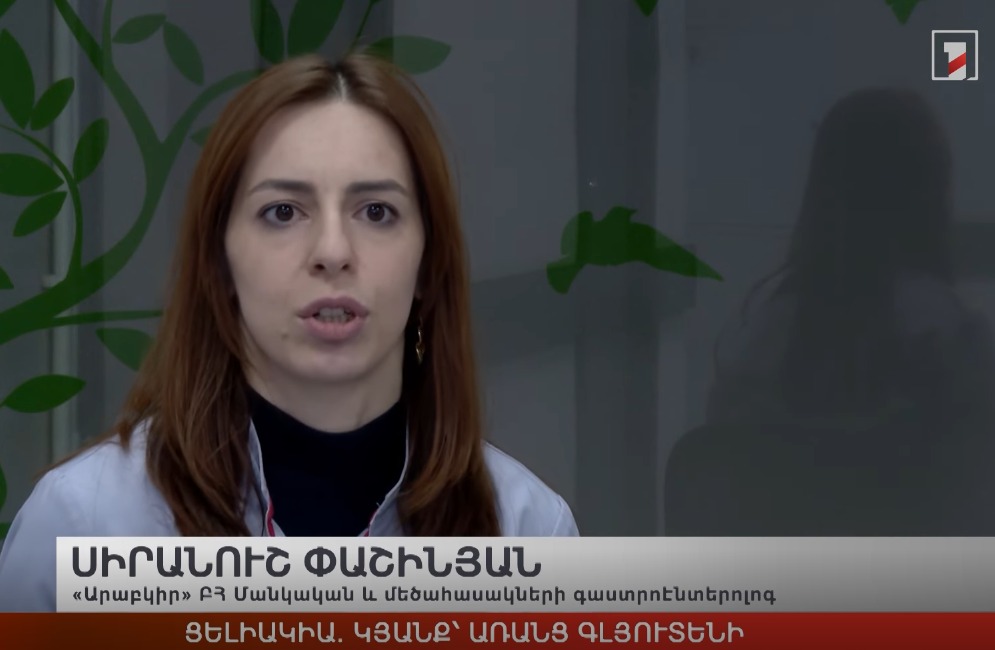
Celiac Disease
16 May
May 16 marks World Celiac Disease Awareness Day, dedicated to raising awareness about this chronic autoimmune condition.
Celiac disease develops due to the body’s immune response to gluten, a protein found in grains such as wheat, rye, and barley. This immune reaction leads to inflammation and damage in the small intestine, impairing nutrient absorption. The condition can be inherited or acquired, and while it may appear at any age, it often presents with:
🔹 Constipation or diarrhea
🔹 Bloating
🔹 Growth delay, short stature, and delayed puberty in children
At Arabkir Medical Center, celiac disease remains a key focus for the Gastroenterology Service, with over 100 children currently under supervision for this condition. As part of our commitment to advanced care, our specialists are also participating in the 57th Congress of the European Society for Paediatric Gastroenterology, Hepatology and Nutrition (ESPGHAN), where the latest developments in celiac disease management are being discussed.
Dr. Siranush Pashinyan, pediatric and adult gastroenterologist at Arabkir, shared her expertise in an interview with Public Television's “News” program:
May 16 is World Celiac Disease Awareness Day. It is an immune disease diagnosed in people with a hereditary predisposition who consume foods containing gluten.
Siranush Pashinyan, a pediatric and adult gastroenterologist at the Arabkir Medical Center, says:
"Gluten is a protein found in certain types of grains—wheat, rye, and barley. Most often, people consume it through flour, which contains gluten. When gluten enters the body, the immune system reacts, resulting in chronic inflammation in the intestines. This leads to serious health problems."
The disease can manifest at any age, and the symptoms can vary.
Siranush Pashinyan continues: "Symptoms include constipation, diarrhea, recurring abdominal pain, and bloating. In older children, for example, growth retardation, short stature, delayed sexual maturation, bone damage, and increased bone fragility due to impaired nutrient absorption may occur. In some cases, the disease can be completely asymptomatic."
There are also non-digestive symptoms, such as hair loss and neurological issues. Some diseases can also be associated with celiac disease. So how is it diagnosed.
Siranush Pashinyan explains: "The first step is an immunological test called the tissue transglutaminase antibody test. A healthy person who does not have celiac disease is very unlikely to have elevated levels of these antibodies in the blood. A positive result is considered a clinical indicator. The next step is to take biopsies from the gastrointestinal tract."
The specialist also notes the primary method of treating celiac disease: maintaining a strict diet.
Siranush Pashinyan says: "The only treatment is a gluten-free diet. Gluten must be completely eliminated from the diet. If the patient has pronounced symptoms, positive changes are typically observed within 2–3 weeks."
In case of symptoms, self-medication should be avoided, and a doctor should be consulted.
Siranush Pashinyan adds: "Our medical center has a pediatric gastroenterology dispensary monitoring service, where children with chronic gastrointestinal diseases up to the age of 18 are monitored. More than 300 children are currently under supervision, over 100 of whom have been diagnosed with celiac disease."
These children are under continuous monitoring to ensure they follow a proper diet and are not deficient in essential vitamins.
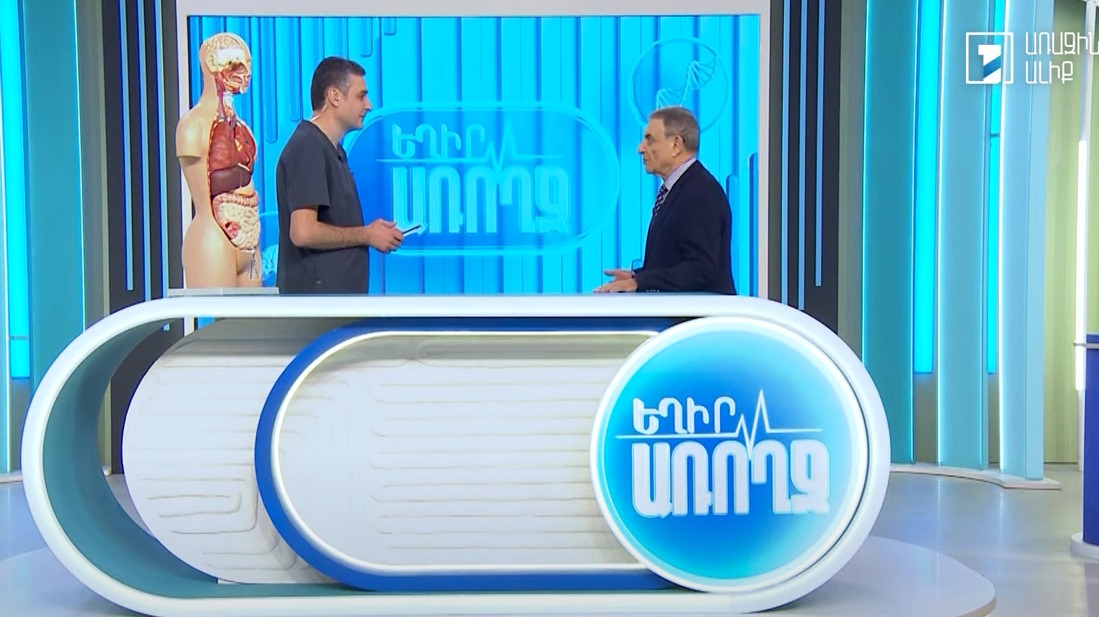
Be Healthy: Organ Transplantation
13 May
Professor Ara Babloyan was a guest on the “Be Healthy” program of the Public TV Company, where the topic of discussion was organ transplantation.
Vahe Ter-Minasyan’s questions and Professor Babloyan’s insights were both informative and valuable. The story of little Tigran was especially moving and inspiring.
Medical science, together with dedicated doctors, gives the gift of life.

Congratulations, Dear Nurses!
12 May
Nurses are one of the indispensable links in any medical team. They play a vital role in patient care, acting as the essential support system for doctors in every step of the treatment process. Their work and dedication are truly invaluable.
We warmly congratulate our dear nurses and all their colleagues, wishing them good health and the opportunity to work in peaceful and supportive conditions.
Be happy in your personal, social, and professional lives. Keep smiling and sharing your smiles, continuing to bring warmth to the hearts of both your young and elderly patients.
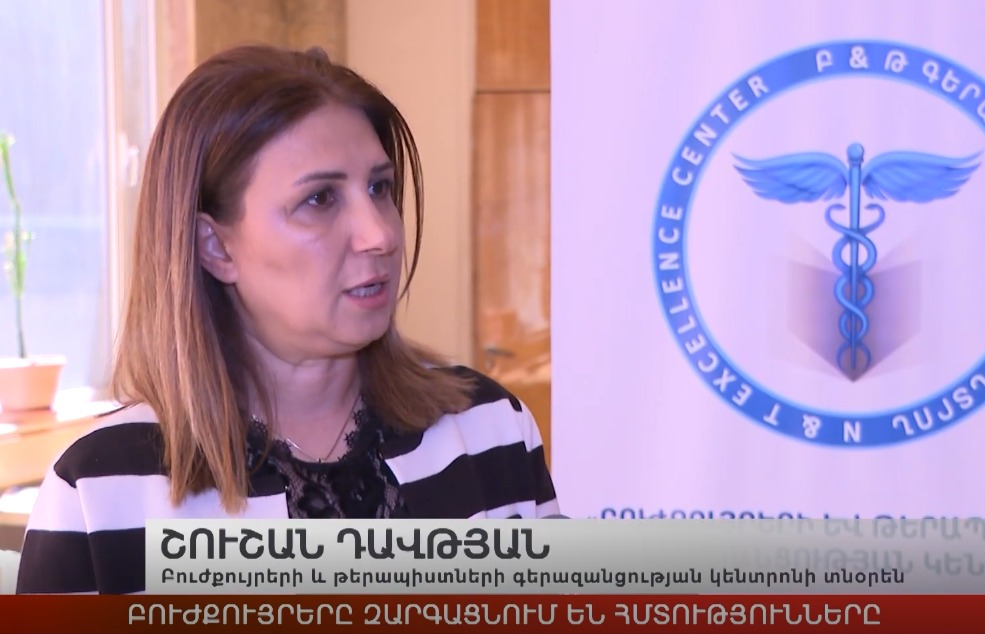
Nursing and Therapists Excellence Center
12 May
On the occasion of Nurses' Day, we highlight the programs of the Center for Excellence in Nursing and Therapy․
The professional nursing team at the "Arabkir" Medical Center—one of the largest in the country—is committed to continuous professional development. They not only undergo regular retraining but also train their colleagues, staying true to the principle that lifelong learning is essential in medical practice.
Watch the coverage by the Public TV Company’s News program.
“We perform chest compressions with two fingers — 100 to 120 compressions per minute.”
With this reminder, the resuscitation instructor guides nurses through key steps to restore heart function in infants during emergency scenarios.
This scene is part of a professional development course for staff from pediatric resuscitation, intensive care, and hemodialysis departments. The course is organized by the Nursing and Therapists Excellence Center, where continuous learning is prioritized in response to ongoing advances in medical practices and technologies.
Shushan Davtyan, Director of the Center, explains: “This is a continuing professional development course accredited by the Ministry of Health of the Republic of Armenia. Currently, around 45 nurses are participating in three different programs. We have attendees from various pediatric hospitals in Yerevan and the regions. The regional component is implemented with the support of the Fund for Armenian Relief.”
These 24-day courses include both theoretical instruction and hands-on simulation-based training. The initiative was inspired by early collaboration with the Swiss Semra Foundation, which helped train the Arabkir Medical Center nursing staff years ago. That experience revealed the broader national need to challenge outdated views — that nurses are only responsible for administering injections or carrying out physicians' orders — and to highlight their central role in patient care.
Naira Avetisyan, Chief Nurse at Arabkir Medical Center and Head of Programs at the Center, highlights: “These courses are also designed to strengthen interdisciplinary collaboration, reinforce professional ethics, and — most importantly — emphasize the autonomous role of the nurse.”
Among the current group are nurses from Talin, Spitak, and Vayots Dzor, who were sent by their hospitals. Others, working in clinics across Yerevan, are attending on their own initiative to earn continuing education credits. Participants practice skills on mannequins in simulation labs and later apply them in real-life clinical situations.
Lena Hovhannisyan, a nurse from the intensive care unit of Vayots Dzor Medical Center, shares: “I’ve been a nurse for 40 years, but I’ve only recently moved into intensive care. We’re learning cardiopulmonary resuscitation, how to work with monitors, defibrillators, and provide artificial respiration.”
Luiza Chvchyan, a nurse from the neonatal resuscitation unit at Erebuni Medical Center, adds: “I’ve been working in neonatal resuscitation for about a year. I try to attend every seminar like this — it’s incredibly helpful.”
Inside the simulation classroom, nurses are challenged to perform life-saving resuscitation techniques on patient models of different ages — a high-pressure but safe environment to build confidence and refine skills.
Throughout the year, the Center will expand its offerings to include specialized trainings for anesthesia nurses, X-ray technicians, and others. It will also conduct periodic courses on emergency response procedures for cardiopulmonary insufficiency and short interventions requiring injections — ensuring that every healthcare professional remains ready to act when every second counts.
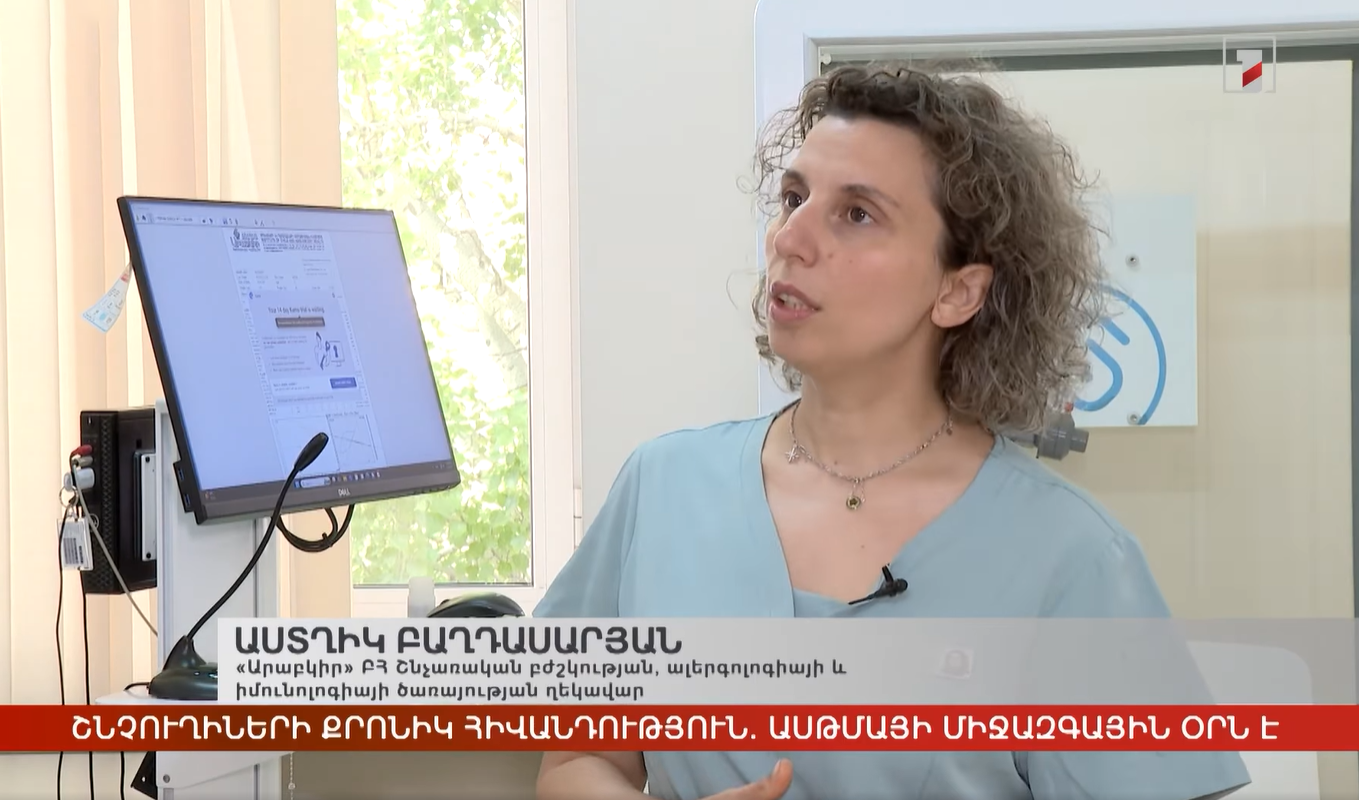
World Asthma Day Coverage by Public TV
06 May
On the occasion of World Asthma Day, the News crew from the Public TV Company visited the “Arabkir” Medical Center to highlight the importance of asthma awareness and management. Dr. Astghik Baghdasaryan, Head of the Respiratory Medicine, Allergology, and Immunology Service, provided expert insights in response to the journalist’s questions.
The “Arabkir” Medical Center remains committed to supporting children living with asthma through a comprehensive approach that includes accurate diagnosis, effective treatment, and consistent outpatient follow-up care. Timely medical consultation is essential, and we urge parents to remain vigilant for early symptoms.
We express our sincere gratitude to the Health Fund for Children of Armenia (HFC Armenia) for their continued support in the provision of necessary medications.
Deep breaths, long exhalations, exercising on a treadmill. These are part of the diagnostic process for bronchial asthma, a chronic condition often influenced by genetic predisposition and environmental factors.
Dr. Astghik Baghdasaryan, Head of the Respiratory Medicine, Allergology, and Immunology Service at the Arabkir Medical Center, explains: “The problem is related to the bronchial tree. If we imagine it as a network of tubes resembling a tree, during asthma episodes, these airways narrow, making it difficult for the child to breathe — particularly to exhale. It takes longer for the air to leave the lungs.”
Asthma typically presents with symptoms such as shortness of breath, wheezing, and crackling sounds in the lungs. Since these symptoms can also be found in other conditions, timely medical evaluation is crucial for an accurate diagnosis.
Dr. Baghdasaryan continues: “In preschool-aged children, about one in three may show asthma-like symptoms — wheezing during and outside of viral infections. Many of these children outgrow the condition, but for some, it persists beyond the age of 4 or 5, when we begin to classify it as asthma.”
Various risk factors can contribute to the development of asthma, and exposure to allergens often triggers flare-ups. To identify such allergens, a skin prick test may be recommended.
“We perform respiratory allergen tests on the skin to determine whether there is an allergic component involved,” says Dr. Baghdasaryan.
Like other chronic conditions, asthma requires long-term monitoring and management. Early diagnosis and intervention can greatly improve outcomes, and in many cases, children may eventually outgrow the condition.
“The main medications used to treat asthma are inhaled therapies,” notes Dr. Baghdasaryan. “Unfortunately, many of these are not registered or available in our country. However, with support from the Health Fund for Children of Armenia and approval from the Ministry of Health, we are able to import and provide these essential medications to children under dispensary supervision.”
To improve asthma care across the country, specialists from Arabkir Medical Center — which holds an international certificate from the European Academy of Allergy and Clinical Immunology — are also training regional healthcare providers. This decentralized approach aims to make asthma diagnosis and treatment more accessible within local communities.
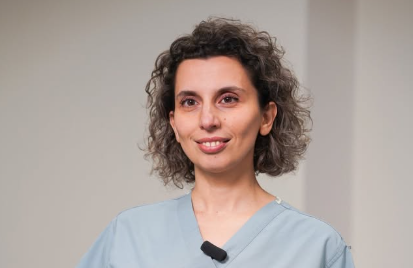
World Asthma Day
06 May
The first Tuesday of May marks World Asthma Day.
This year’s theme is “Make inhaled treatment accessible to all.”
The “Arabkir” Medical Center, together with the Health Fund for Children of Armenia, supports this initiative by showcasing the program implemented in partnership with the Ministry of Health. The goal remains the same: to map asthma across Armenia and decentralize its management, bringing services closer to patients and ensuring that necessary asthma medications are accessible to all children in need.
Watch this video featuring Astghik Baghdasaryan, Head of the Respiratory Medicine, Allergology, and Immunology Service at “Arabkir” Medical Center, for more details.
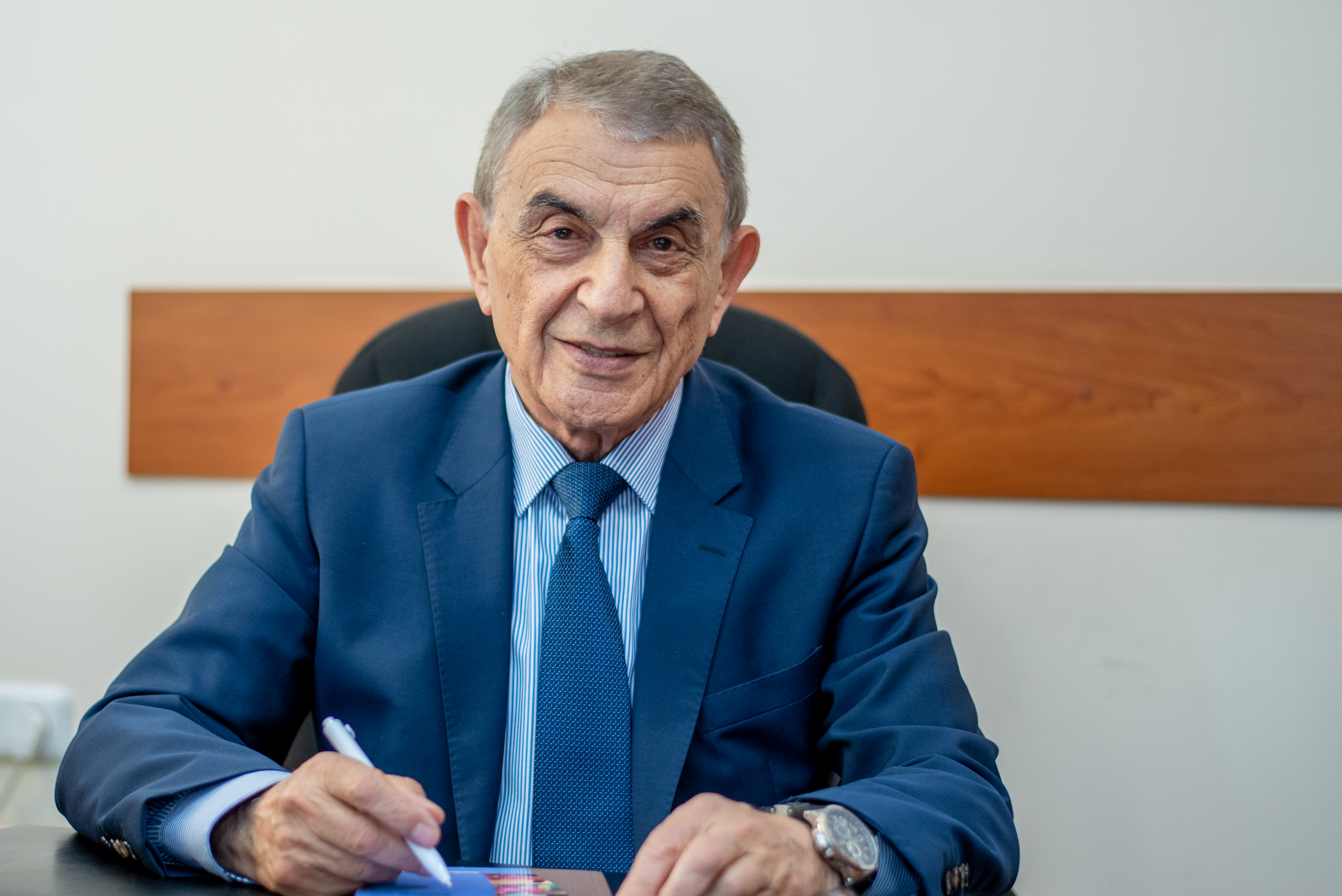
Happy Birthday!
05 May
Dear Ara Sayen,
We warmly congratulate you on your birthday and wish you good health and countless successes as you continue your mission for our children—implementing new programs and continuously enriching Armenia’s healthcare system.
Your experience and active support are truly invaluable to young doctors. Your example inspires and motivates us all. Thank you for your dedication.
Happy Birthday!

 English
English
 Հայերեն
Հայերեն Русский
Русский